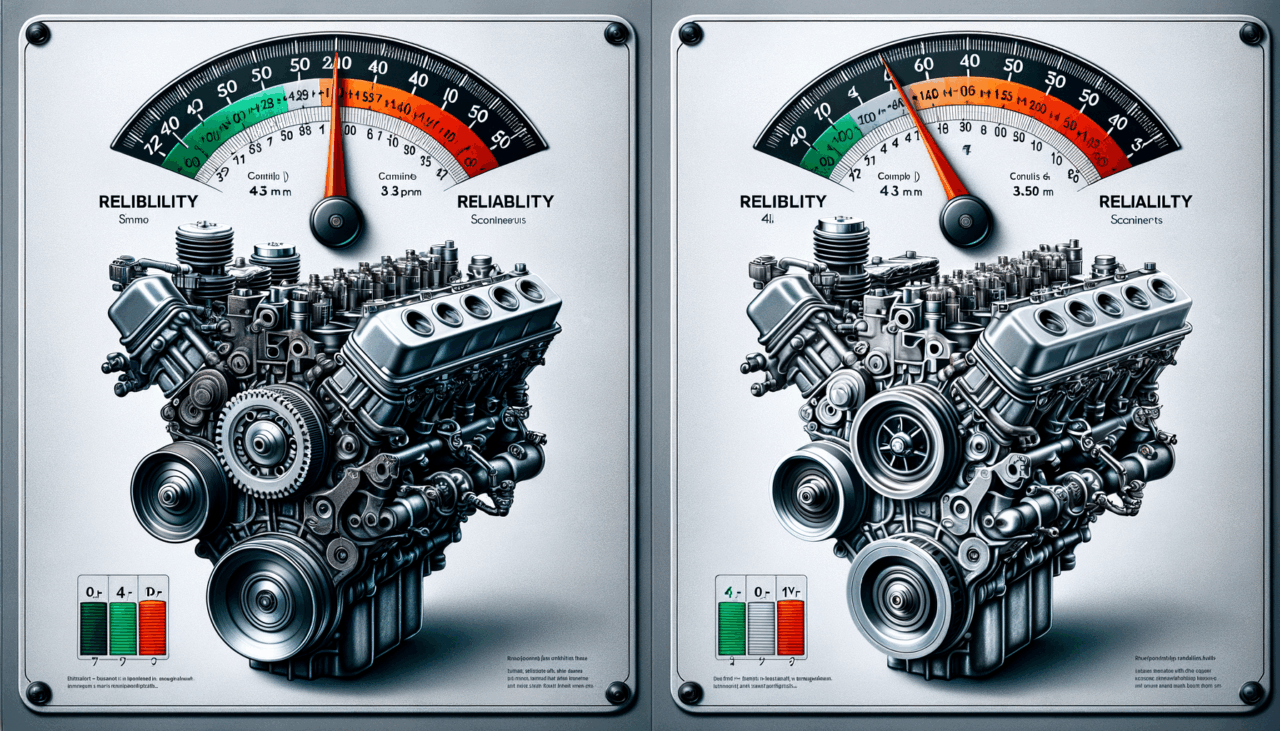3-Cylinder vs. 4-Cylinder Engines: What’s More Reliable?
Engines are the heart of our vehicles, powering everything from our daily commutes to our road trip adventures. When it comes to choosing between a 3-cylinder and a 4-cylinder engine, many drivers are left scratching their heads, wondering which option offers better reliability. Let’s delve into the nitty-gritty of these engine types to help you make an informed decision.
Characteristics of 3-Cylinder Engines
Efficiency and Economy:
The 3-cylinder engine is often lauded for its fuel efficiency. With fewer cylinders, it inherently consumes less fuel, which is kind to both your wallet and the environment. This makes it an appealing choice for those primarily focused on city driving.
Compact Design:
These engines are typically smaller and lighter, which allows for better weight distribution in compact vehicles. It’s like having a lean, mean, driving machine that can maneuver through the tightest of spots.
Performance:
Now, here’s where things get interesting. While traditional thinking may suggest that fewer cylinders equate to less power, modern engineering has allowed 3-cylinder engines to punch well above their weight. Turbocharged versions can deliver impressive performance, though they may lack the top-end power seen in larger engines.
Vibration and Noise:
One downside is that 3-cylinder engines can be a bit noisier and prone to vibrations. It’s a bit like having a didgeridoo in your car—not unpleasant, but certainly noticeable.
Characteristics of 4-Cylinder Engines
Balanced Power and Efficiency:
4-cylinder engines strike a balance between performance and fuel economy. They are the stalwarts of reliability, often found in family sedans and mid-sized SUVs. It’s the engine equivalent of a sensible pair of shoes—comfortable and dependable.
Smoother Operation:
Thanks to the additional cylinder, 4-cylinder engines typically run smoother than their 3-cylinder counterparts. It’s like gliding through the Outback in a well-cushioned 4WD.
Versatility:
These engines are versatile, providing sufficient power for various applications without compromising on fuel efficiency. Whether you’re zipping through the city or cruising on the highway, a 4-cylinder engine generally offers a more refined driving experience.
Maintenance and Longevity:
When it comes to maintenance, the 4-cylinder engine often wins out. With more widespread use, parts are more readily available and mechanics are well-versed in their upkeep, contributing to their reputation for longevity.
Comparative Table: 3-Cylinder vs. 4-Cylinder Engines
| Feature | 3-Cylinder Engine | 4-Cylinder Engine |
|---|---|---|
| Fuel Efficiency | Higher in stop-and-go situations | Generally efficient, with better highway mileage |
| Size and Weight | Smaller and lighter | Larger and heavier |
| Power Output | Adequate, especially with turbocharging | More balanced power across different speeds |
| Vibration and Noise | Higher, can be more noticeable | Smoother and quieter operation |
| Versatility | Best for city and light-duty use | Suitable for city and highway driving |
| Maintenance | Less common, fewer parts available | Widely available parts, easier to maintain |
| Longevity | Can be reliable with proper care | Known for durability and longer lifespan |
Real-Life Anecdote
Ah, the memories of my first car! It was a humble hatchback with a 3-cylinder engine. I remember once taking it on a road trip from Sydney to Melbourne. The little engine that could huffed and puffed but got me there without a hitch, albeit with a few more pit stops than my mate with a 4-cylinder sedan. It taught me a valuable lesson: while 3-cylinder engines are marvels of efficiency, they may not always be the ideal choice for long stretches of highway driving.
Conclusion
So, what’s more reliable: a 3-cylinder or a 4-cylinder engine? It largely depends on your driving needs. If you’re zipping around the city and value fuel efficiency in a compact package, a 3-cylinder engine might be your best bet. However, if you’re looking for a smooth, versatile performer with a proven track record, the 4-cylinder engine stands out as the tried-and-true choice. Whatever your preference, both engine types have evolved to offer reliability and performance that were once unimaginable.
Remember, the best choice is the one that aligns with your driving lifestyle and priorities. Happy driving!

Comments (0)
There are no comments here yet, you can be the first!